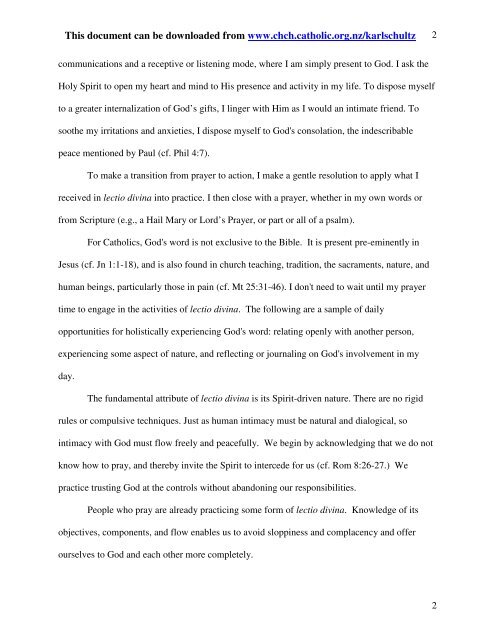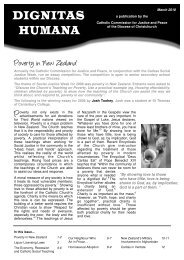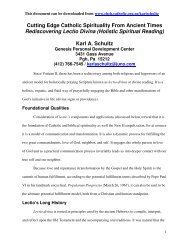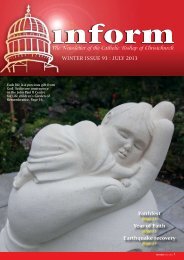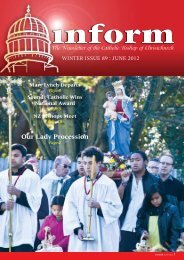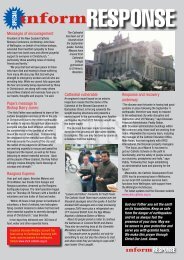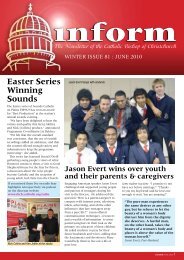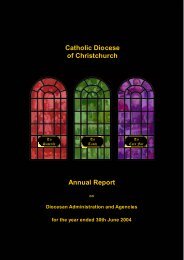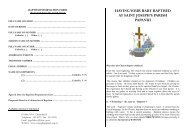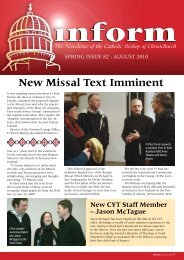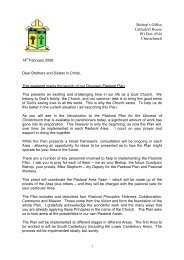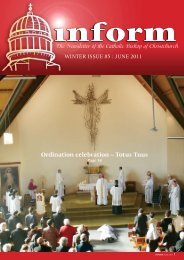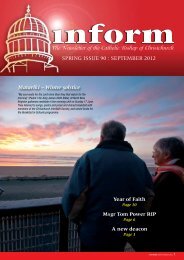Lectio Divina - Summary.pdf
Lectio Divina - Summary.pdf
Lectio Divina - Summary.pdf
You also want an ePaper? Increase the reach of your titles
YUMPU automatically turns print PDFs into web optimized ePapers that Google loves.
This document can be downloaded from www.chch.catholic.org.nz/karlschultz 2<br />
communications and a receptive or listening mode, where I am simply present to God. I ask the<br />
Holy Spirit to open my heart and mind to His presence and activity in my life. To dispose myself<br />
to a greater internalization of God’s gifts, I linger with Him as I would an intimate friend. To<br />
soothe my irritations and anxieties, I dispose myself to God's consolation, the indescribable<br />
peace mentioned by Paul (cf. Phil 4:7).<br />
To make a transition from prayer to action, I make a gentle resolution to apply what I<br />
received in lectio divina into practice. I then close with a prayer, whether in my own words or<br />
from Scripture (e.g., a Hail Mary or Lord’s Prayer, or part or all of a psalm).<br />
For Catholics, God's word is not exclusive to the Bible. It is present pre-eminently in<br />
Jesus (cf. Jn 1:1-18), and is also found in church teaching, tradition, the sacraments, nature, and<br />
human beings, particularly those in pain (cf. Mt 25:31-46). I don't need to wait until my prayer<br />
time to engage in the activities of lectio divina. The following are a sample of daily<br />
opportunities for holistically experiencing God's word: relating openly with another person,<br />
experiencing some aspect of nature, and reflecting or journaling on God's involvement in my<br />
day.<br />
The fundamental attribute of lectio divina is its Spirit-driven nature. There are no rigid<br />
rules or compulsive techniques. Just as human intimacy must be natural and dialogical, so<br />
intimacy with God must flow freely and peacefully. We begin by acknowledging that we do not<br />
know how to pray, and thereby invite the Spirit to intercede for us (cf. Rom 8:26-27.) We<br />
practice trusting God at the controls without abandoning our responsibilities.<br />
People who pray are already practicing some form of lectio divina. Knowledge of its<br />
objectives, components, and flow enables us to avoid sloppiness and complacency and offer<br />
ourselves to God and each other more completely.<br />
2


